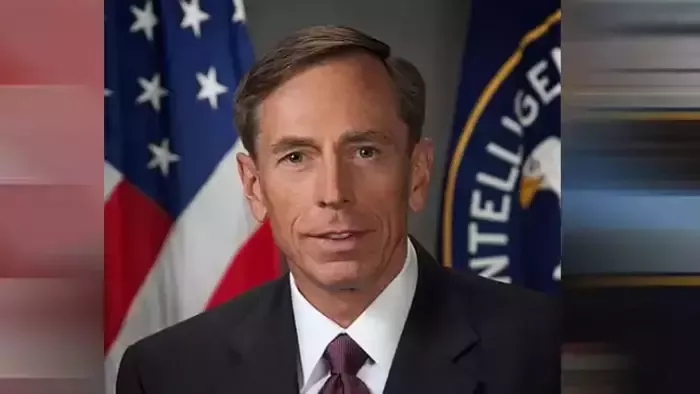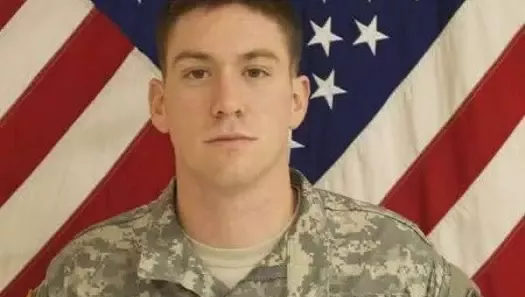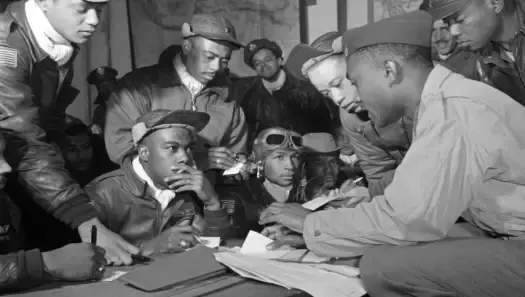HeroVet: General David H. Petraeus, Director of the Central Intelligence Agency

General David Petraeus is hardly living the life of your typical military retiree – as head of the Central Intelligence Agency, his impact is far reaching and increasingly in the public eye. Outside of presidents and prime ministers, a select few can lay claim to being a household name across the globe, and also have the responsibility in securing their safety and well being.
His prominence on the world stage reflects his decade-long commitment and success in bringing some measure of stability to the Middle East in the aftermath of 9/11. And back home, Petraeus deserves our country's gratitude for helping to bring a measure of military closure in Iraq, an area once seen as disastrous, and in stabilizing the Afghan battlefield, a seemingly impossible task. These days, his role heading the CIA is more critical than ever.
The choice of General Petraeus, with his broad bipartisan support, has bolstered President Obama's national security strategy, fresh off the removal of Osama bin Laden and Muammar Gaddafi from the world stage.
Senator Lindsey Graham, Republican of South Carolina, called General Petraeus "a national treasure" and said he was an "inspired choice" to lead the C.I.A. When the general's name was floated for the job, Representative Norm Dicks, Democrat of Washington, said, "Anything Petraeus does, he'll do a good job at."
Last year, the Intrepid Sea, Air & Space Museum paid tribute to him at its 19th Annual “Salute to Freedom Dinner” capping Military Appreciation Month earlier that year. Past recipients of the Award include four U.S. Presidents, congressmen and senators, as well as past and present international leaders such as U.K. Prime Minister Margaret Thatcher, President Boris Yeltsin of Russia, Yitzak Rabin of Israel and Silvio Berlusconi of Italy.
In the days since taking command of the CIA in September, Petraeus has joined a high-powered U.S. delegation to Pakistan to re-enforce cooperation between the two nations, presenting his emergent role on the world diplomatic stage. And this week he will be lauded by fellow veterans and civilians on home soil, where he will be honored as a Grand Marshall in the New York City Veterans Day Parade. Joining Petraeus this year will be Veterans Advantage Advisory Board member Paul W. Bucha.

Petraeus at the Intrepid Salute to Freedom Awards Dinner
A Deadly Serious Endeavor
Petraeus has always viewed service with an unmatched degree of seriousness and compassion. “In some respects it’s the kind of job where you can say, ‘Gosh, this is something I have dreamed of doing my whole life,’ and it is. And if there weren’t real people out there really fighting and really dying, you’d just be—you would be exhilarated,” Petraeus says in a 2010 interview with Vanity Fair. “But the fact is there are real people fighting and dying, and it is a deadly serious endeavor. On tough days that really sets in.”
For Petraeus, a challenge, such as those that lay before him as head of the CIA, is a goal in itself. But he has always reached his goals with zeal, ever since his West Point days where he led in academics and athletics. Noted for his play on the ski and soccer teams, Petraeus finished in the top 5% of his West Point Class of 1974. And not to rest on those laurels, he also won a place in the academy’s most-challenging pre-med studies program, only to turn it down, an academic mountain he basically sought out “just because it was the toughest one to climb.”
General Petraeus was born on Nov. 7, 1952 to Miriam (a librarian) and Sixtus (a Dutch merchant marine captain), in upstate NY, a short drive from West Point. He commanded the 101st Airborne Division during the 2003 invasion of Iraq -- his first combat assignment, where he led troops under fire in Najaf as well as in and around Mosul. As the realities of post-war Iraq had set in, Petraeus was brought back on a second tour to train the new Iraqi Army.
But his most defining moments were still at hand. In 2005, General Petraeus took over the Army's officer school and doctrinal center at Fort Leavenworth, Kansas, a fitting assignment for a man who holds a doctorate in international relations from Princeton University's Woodrow Wilson School, and whose post-graduate experience was punctuated by a dissertation entitled, "The American Military and the Lessons of Vietnam."
In this post, and with one eye on our military past, he led the military's effort to rewrite its counterinsurgency doctrine, to be called Army Field Manual 3-24, filling a gap of 20 years since the Army last tackled the subject.
Petraeus’s academic influence appeared in the foreword (“You cannot fight former Saddamists and Islamic extremists the same way you would have fought the Viet Cong, Moros, or Tupamaros;” says the foreword). And the first chapter likewise kicked off with what has now become famous for its cerebral reference: “Counterinsurgency is not just thinking man’s warfare—it is the graduate level of war,” topped the chapter, through the words of a special forces officer.
In the foreword, Petraeus and Marines Lt. Gen. John Amos elaborate on this fresh approach:
It requires Soldiers and Marines to employ a mix of familiar combat tasks and skills more often associated with nonmilitary agencies. The balance between them depends on the local situation. Achieving this balance is not easy. It requires leaders at all levels to adjust their approach constantly. They must ensure that their Soldiers and Marines are ready to be greeted with either a handshake or a hand grenade while taking on missions only infrequently practiced until recently at our combat training centers. Soldiers and Marines are expected to be nation builders as well as warriors.
The impact of Petraeus’s signature approach to Iraq was clear when Manual 3-24 become the first Army Manual ever reviewed by the New York Times Book Review. It became a national best-seller.
“The idea is to go to bed every night with fewer enemies than you had in the morning,” Petraeus said in a recent article.
Iraq and Afghanistan

Intrepid Salute to Freedom Award
The buzz surrounding 3-24’s publication soon became a national calling to fix Iraq and to fix it fast. Petraeus took control of the Multi-National Force-Iraq (MNF-I) early in 2007. And by September, 2007, fresh from having attending their son’s ROTC graduation ceremony in Fort Benning Georgia, Petraeus was called to Congress to defend what has now become the famous “surge” that ultimately resulted in the drop of monthly US daily casualties in Iraq from a May 2007 Petraeus-led peak of 126, to 23 for the first four months of 2010.
Bolstered by this success, in November 2008, General Petraeus took charge of Central Command with responsibility for military operations in Iraq, Afghanistan and across the region. With that came responsibility for overseeing military operations in Iraq and in Afghanistan, where violence increased markedly, and a strategic crescent that includes Pakistan, Iran, Syria, Lebanon, Saudi Arabia and the former Soviet republics of Central Asia.
A similar surge, against considerable odds, is reported to be reaping dividends in Afghanistan. He reflects on the broader success of his strategy first outlined in 3-24:
"People are the key" to success in military and intelligence operations, Petraeus told a gathering at Ft. Bragg earlier this month. The U.S. experience in Iraq showed "you can't kill or capture your way out of an industrial-strength insurgency," he said.
Military Background
Prior to Iraq, Petraeus’s command of the 101st followed a year deployed on Operation Joint Forge in Bosnia, where he was the Assistant Chief of Staff for Operations of the NATO Stabilization Force and the Deputy Commander of the US Joint Interagency Counter-Terrorism Task Force-Bosnia. Prior to his tour in Bosnia, he spent two years at Fort Bragg, North Carolina, serving first as the Assistant Division Commander for Operations of the 82nd Airborne Division and then as the Chief of Staff of XVIII Airborne Corps.
General Petraeus was commissioned in the Infantry upon graduation from the United States Military Academy in 1974. He has held leadership positions in airborne, mechanized, and air assault infantry units in Europe and the United States, including command of a battalion in the 101st Airborne Division (Air Assault) and a brigade in the 82nd Airborne Division. In addition, he has held a number of staff assignments: Aide to the Chief of Staff of the Army; battalion, brigade, and division operations officer; Military Assistant to the Supreme Allied Commander - Europe; Chief of Operations of the United Nations Force in Haiti; and Executive Assistant to the Chairman of the Joint Chiefs of Staff.
General Petraeus was the General George C. Marshall Award winner as the top graduate of the U.S. Army Command and General Staff College Class of 1983. He subsequently earned MPA and Ph.D. degrees in international relations from Princeton University’s Woodrow Wilson School of Public and International Affairs, and later served as an Assistant Professor of International Relations at the US Military Academy. He also completed a fellowship at Georgetown University.
Military Decorations
Awards and decorations earned by General Petraeus include two awards of the Defense Distinguished Service Medal, two awards of the Distinguished Service Medal, two awards of the Defense Superior Service Medal, four awards of the Legion of Merit, the Bronze Star Medal for valor, the State Department Superior Honor Award, the NATO Meritorious Service Medal, and the Gold Award of the Iraqi Order of the Date Palm. He is a Master Parachutist and is Air Assault and Ranger qualified. He has also earned the Combat Action Badge and French, British, and German Jump Wings.
Media Awards
In 2005 he was recognized by the U.S. News and World Report as one of America’s 25 Best Leaders, and in 2007 he was named by Time magazine as one of the 100 most influential leaders and revolutionaries of the year and one of four runners-up for Time Person of the Year. Most recently, he was selected in a poll conducted by Foreign Policy and Prospect magazines as one of the world’s top 100 public intellectuals and was chosen by Esquire magazine as one of the 75 Most Influential People of the 21st Century.
Family
When one member of the family serves, the whole family serves and such is the case in General Petraeus' family. Holly, his spouse of 34 years, a summa cum laude graduate of Dickinson College and daughter of Army General William A. Knowlton, currently serves as the assistant director of the Consumer Financial Protection Bureau’s Office of Servicemember Affairs. This government office is dedicated to protecting service members and their families from financial predators and pitfalls. The Petraeus's have a daughter and son, the later who recently served in Afghanistan as a platoon leader.



